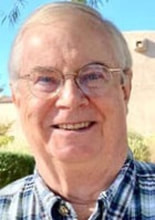 Peter Gow Peter Gow I am a small-town boy, and thus I have seen my share of small-town Fourth of July parades—the Scout troops, the emergency vehicles, the fire department drum and bugle corps. It’s hard not to be a least a little bit moved by the spirit of volunteerism and community engagement that all the floats and marching groups embody. It is the spirit of America harkening right back to the days of de Tocqueville and even the Sons of Liberty. A feature of these parades that I’ve enjoyed, and sometimes cringed at, are the representations of local history. On the Glorious Fourth these can tend toward the triumphalist and exaggerated, but we small-towners like to note our sesquicentennials, tricentenaries, “first” settlers (with indigenous populations too often forgotten, alas), Oldest Residents (how many towns still have their Lincoln Cane?), civic and fraternal organizations, and sometimes even lost industries. Even the antique tractors (my personal favorite, always) are their own kind of history. As a history teacher myself in days of yore I often tried to tie local and regional history into whatever topic I was teaching, and I have paraphrased one of my former student’s congressional grandfather by offering my own adage, “All history is local history.” It was interesting to ask students to do a bit of research on their own communities during, say, the Civil War epoch or even the Great Depression—to see how these textbook events affected real people in their own neighborhoods. I confess that I was brought up short this Fourth of July to read a reference to the holiday as Independence Day; I have become all too accustomed to thinking of it as just a date, a calendar marker proclaiming “Summer!” But the events it commemorates were not about parades and hot dogs but rather independence: the shedding of external, imperial constraints to better meet the needs of the colonists. We can argue about privilege and whose voices were and were not represented in 1776, but the story line ought to be familiar to educators in 2016 as we work to create educational programs built on modern, democratic principles that will serve the students we have in our own classrooms based on the missions and values of our own schools. Whether the external forces be test-building behemoths, Texas-driven textbooks, the shadow of the Common Core (regardless of whether it’s a good thing or a bad thing), state testing mandates, or merely the fraught college admission landscape and our perceptions of its imperatives (nudged gently into states of greater fear and complicity by the voiced anxieties of families and students), there have been generations of pressure on schools and their curricula to fall into line with a vast external design whose outlines may be dim but whose effects are stark—and all too often stultifying. (And who among us has not at least once referred to some of these constraining forces as an “evil empire”?) The ICG’s Principles of Independent Curriculum may not ring likethe Declaration of Independence, but they are at least an analogue, our ideals for the creation of each school’s own autonomous, mission-informed approach to teaching and learning, tailored to the requirements of its own students. We’re proud of them and like to think that they are inspiring, thoughtful, and above all useful. Independence Day, the holiday, brought home to me that there is a kind of corollary to the idea of “independent curriculum”: the concept that there can be no more independent a curriculum than one that draws on its natural, social, cultural, and historical environment—place-based education, if you will. Perhaps because my neighbor is executive director of a sparkling regional resource (the Lake Champlain Maritime Museum) and because over the hill from my current location is North Country School, of which I have written elsewhere, learning with local roots is on my mind these days. The place-based curricula that schools and cultural and historical organizations create is, by definition, about as independent as curriculum can be. I once blogged about the good things that can happen when schools embrace place—when Our Town Country Day makes an effort to be Our Town’s Country Day—and so as the memory of Independence Day 2016 fades, I want, on behalf of the ICG, to put out a general inquiry as to the state of place-based learning, as independent curriculum, in our schools today. What is happening at your school or in your organization that supports the idea of place-based learning and that exemplifies in its way an independent approach to curriculum in ways that align with both the ICG’s Principles and, dare I say, the Declaration of Independence itself? Whether you see “place-based learning” as a throwing off of shackles or from a more affirmative perspective, how do your history, art, literature, science, language, and even mathematics programs reflect not just your school’s ethos but the very place in which your school is situated? How can engaging with one’s locale ignite their interest and activity? Perhaps down the road there might be an ICG conference or symposium—certainly some webinars and podcasts—on Independent Curriculum and Place-Based Learning. We might even kick such an event off with a parade.
0 Comments
Leave a Reply. |
Don't miss our weekly blog posts by joining our newsletter mailing list below:AuthorsBrad Rathgeber (he/him/his) Archives
July 2024
Categories |

 RSS Feed
RSS Feed